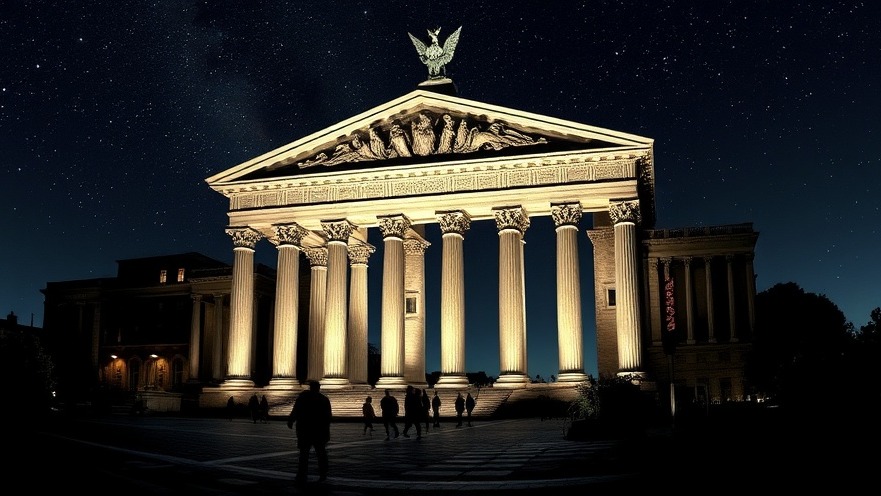
Legislative Shift: Texas Emphasizes Christian Terms in Education
In a significant legislative shift, the Texas Senate has passed a bill requiring public schools to use the terms "Before Christ" (B.C.) and "Anno Domini" (A.D.) when tracking historical years. Senate Bill 2617, approved with a 22-9 vote, directs educators to adopt a framework that aligns strictly with these Christian-centric terms, diverging from the increasingly recognized secular alternatives of "Before Common Era" (B.C.E.) and "Common Era" (C.E.). This provision not only affects what teaching materials schools may purchase but aims to create a consistent teaching format across the state, as asserted by Sen. Brandon Creighton, the bill's author.
A Push for Religious Education: Implications of the Bill
The bill’s passage highlights the broader conservative trend in Texas, where lawmakers have been pushing for more overtly religious influences in public education. Proponents argue it offers clarity in teaching historical timelines without ambiguity. Critics, however, express deep concern that the legislation narrows the educational experience for students.
Historian Paul Colbert articulated these concerns when he testified against the bill, emphasizing the need for an understanding of worldwide historical context. Colbert’s perspective is shared by historians who advocate for inclusive education, allowing students to learn about varied cultural backgrounds. The recent legislation has sparked a renewed debate about the foundations of American education and the role of religion within it.
History of Christian Terminology in Education
This move doesn't come in isolation. It's essential to recognize that the push to impose Christian terminology has been a growing trend in various states. In 2022, the Texas State Board of Education had considered moving away from B.C. and A.D. in favor of more inclusive terms yet ultimately chose to defer this discussion until now. The Board’s rightward shift may reflect wider national sentiments, as similar legislative proposals have emerged elsewhere in the U.S., suggesting a continued trajectory toward integrating religious perspectives into educational curricula.
The Broader Educational Context
As it stands, there’s a significant divide between traditional educational practices and modern methodologies. While the old B.C. and A.D. model has long been in practice, the shift towards C.E. and B.C.E. is increasingly gaining traction amongst educators who seek to embrace inclusivity and respect for diverse backgrounds. It raises the question: how can educational institutions best prepare students for a spiritually and culturally diverse world?
Voices Against the Bill: The Need for Inclusivity
Critics of the bill emphasize that understanding historical perspectives is crucial to fostering critical thinking in students. As Paul Colbert stated, denying students the opportunity to learn the terminology that reflects a broader context of world history undermines their education. As schools aim to prepare students for a globalized world, educators advocate for curricula that reflect humanity's rich tapestry of cultures and beliefs.
Future Implications for Education in Texas
The implications of this bill reach far beyond terminology; it reflects a crucial juncture in Texas education. As legislation like Senate Bill 2617 surfaces, parents, educators, and policymakers are compelled to reconsider what the future of education in Texas should look like. Will Texas persevere with its timeline steeped in religious terminology, or will a pushback from academics and parents lead to a more inclusive academic standard?
Taking Action: What You Can Do
The conversation surrounding education in Texas makes it paramount for constituents to engage with their local representatives regarding legislative matters that impact public education. Parents, educators, and citizens can voice their opinions about the growing integration of religious elements in schools. As future legislation continues to shape the curriculum, community involvement remains vital in ensuring that education reflects a broad spectrum of ideologies.
In light of these developments, it’s critical for Texas residents to stay informed about upcoming legislative sessions and potential changes to their public education systems. Engaging in grassroots advocacy may prove essential in shaping an educational landscape that respects all religious and cultural backgrounds.
 Add Element
Add Element  Add Row
Add Row 



Write A Comment